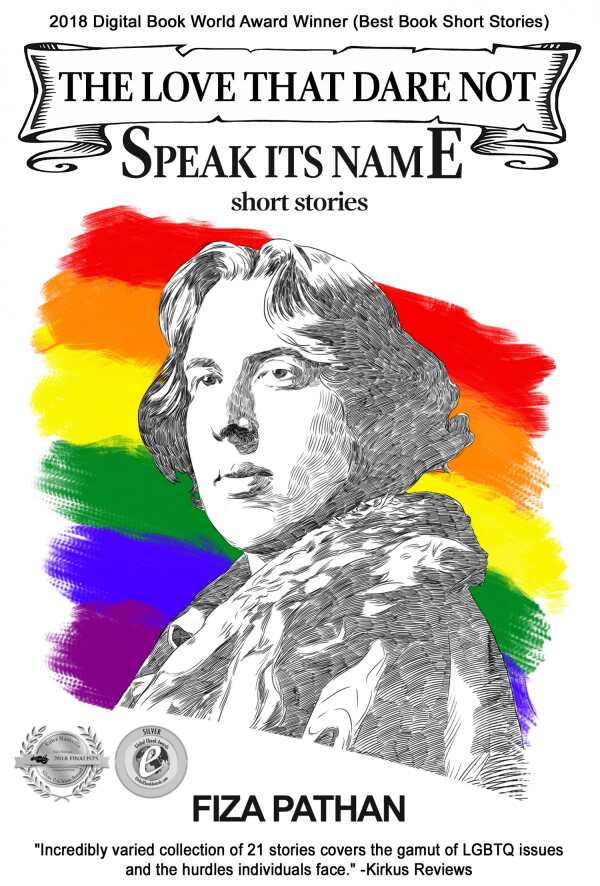The Love that Dare Not Speak Its Name
Each story in The Love That Dare Not Speak Its Name resounds a call for the cultural acceptance of LGBTQ+ people.
The Love That Dare Not Speak Its Name by Fiza Pathan is a tender and enlightening collection of stories focused on modern sexuality and related through a diverse cast of characters. Heartfelt and at times shocking, the stories in this collection shine a light on hate, prejudice, and whirlwind of emotions that LGBTQ+ people and their allies face.
The characters in this book struggle for self-awareness and acceptance against rampant ignorance and bigotry. In the title story, two young Indian men must obey the antiquated and patriarchal rules of their culture and hide their forbidden love. In “The Books on His Lap,” a presumably gay boy falls prey to severe bullying at school—and at home. In “Mea Culpa,” a lapsed Catholic is shamed because of her transgender child by an insufferable nun, who, in a swift plot twist, must face her own demons.
The book is careful with details and terminology, resulting in respectful and informative writing that helps drive each story and deliver appropriate impact. Many of the stories focus on intersex children and adults, and the confusion of the characters is tangible as they navigate love and sexuality in ambiguous terms. It is tragic to watch these characters, many of whom feel “born in the wrong body,” struggle with their shame and self-esteem, as well as with the nefarious forces of the outside world.
Writing is choppy, characterized by short sentences and bland descriptions. Some settings are vague, as with “a small town in the United States of America,” and some details confusing, as when one father is named Pablo Escobar, forcing thoughts of the infamous Colombian drug lord. Still, the book delivers thoughtful surprises and poignant moments.
These stories are not light. In addition to sexuality, they draw on themes of religion, friendship, family, justice, and self-worth. As the grandfather of one intersex child says, “I will say that equality exists beyond the boundaries of what is between someone’s legs.” The collection a testament to this statement. Another grief-stricken character laments, “My sister died in anonymity,” a silence that the collection works to reverse.
Stories follow a thought-provoking arc, while each elicits empathy and sadness. Fictional newspaper articles echo the all-too-real horrors of homophobic bullying, rage, and murder, emphasizing that the issues facing the LGBTQ+ community should not be ignored.
Each story in The Love That Dare Not Speak Its Name resounds a call for the cultural acceptance of LGBTQ+ people.
Reviewed by
Meredith Hardwicke
Disclosure: This article is not an endorsement, but a review. The publisher of this book provided free copies of the book and paid a small fee to have their book reviewed by a professional reviewer. Foreword Reviews and Clarion Reviews make no guarantee that the publisher will receive a positive review. Foreword Magazine, Inc. is disclosing this in accordance with the Federal Trade Commission’s 16 CFR, Part 255.

